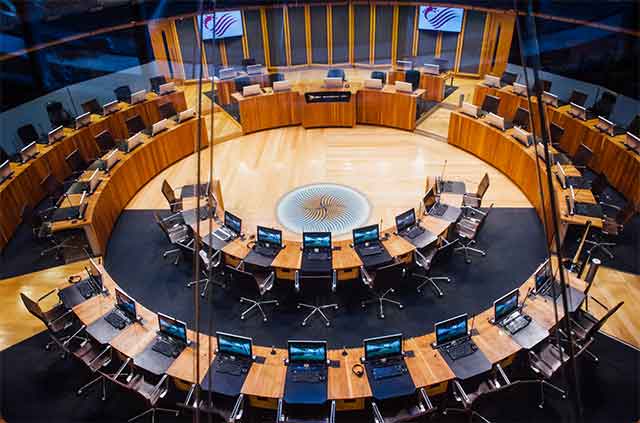General practitioners called for an overhaul of an “outdated, unfair” funding model, warning of an “enormous and growing” inequity putting patient safety at risk.
Doctors gave evidence as the Senedd’s health committee began an inquiry into the future of GPs amid concerns about more than 100 surgeries across Wales shutting since 2012.
James Pink, a GP partner in Llanishen, Cardiff, expressed concerns about the Carr-Hill formula, used to allocate funding to practices, which was designed in the late 1990s.
He said: “There’s almost no correlation between funding and deprivation which beggars belief. And the correlation between age, sex and funding isn’t as clear cut as you’d think.”
Dr Pink told the committee variation across Wales means an average practice could be £862,000 worse off than another similarly looking after 10,000 patients.
‘Grim’
Noel McLoughlin, a partner at St Isan Road Surgery in Heath, said his colleague found Cardiff and Vale GPs were the worst-funded in the whole of Wales and England.
Dr McLoughlin wrote to the committee: “This means that the Carr-Hill formula regards Cardiff as the wealthiest and healthiest area with the lowest needs.
“This is clearly nonsense. The inequity in funding in Wales alone is enormous – worse still, it is growing. This must stop or the future for general practice and primary care in Cardiff is grim. No-one will want to work here.”
The GP warned: “All patients in all areas are having difficulty accessing primary care. We are struggling to maintain safe levels of working with the current demand and it is going to rise.”
Kate Baker, another Cardiff GP, wrote: “It has been distressing to see the deterioration in funding and support for general practice over the 17 years I have worked as a GP.
‘Crisis management’
“The partners in our practice have not seen a pay rise for nine years and, in fact, the imposed contract for 2023/24 led to a pay cut.”
Giving evidence on July 10, Richard Stratton, a GP partner in Powys, agreed about the necessity of updating the “unfair” formula but cautioned that it will remain a blunt tool.
Dr Stratton told the health committee: “What we also need to factor in is the supplementary services that general practices participate in on top of the core contract.”
He said: “The combination of a revised formula plus better use of local services… would take us forward enormously. At the moment, both feel hamstrung by budgetary constraints.”
Asked about the system of annual negotiations on the General Medical Services (GMS) contract, Dr Stratton said single-year budgets have a debilitating impact on investment. “Without that ability to plan, everything is crisis management,” he warned.
‘Double whammy’
John Williams, a practice manager in north Wrexham, described the contract process as piecemeal and rushed, criticising “tokenistic” smaller investments for posters and suchlike.
Mr Williams pointed to a “double whammy” on employer national insurance contributions, with no public exemption and no £10,500 employment allowance like private businesses.
He said his 13,000-patient practice also faces a £70,000 or 20% overnight increase in its wage bill due to changes to the national living wage.
In its written evidence, the Royal College of General Practitioners said GPs worked across 516 practices in Wales in 2002 but only 374 remain today.
Angharad Fletcher, a GP in Flintshire, warned health board-managed practices are much more expensive to run compared with GMS surgeries yet deliver a “vastly inferior service”.
‘No-one cares’
“GMS is underfunded,” she wrote. “Costs have risen significantly over the past five years and income has not matched that which means in some cases surgeries are having to cut staff when the demand is greater than ever.”
Dr Fletcher added: “There is no longer a workforce crisis. There are many qualified GPs looking for work. Practices cannot afford to employ them.”
One GP, who wished to be anonymous, expressed grave concerns, warning: “We are struggling to provide an acceptable service to our patients. The funding for our practice has been eroded over the last 12 years, such that I have fears there will be harm to patients.”
Another concluded: “If politicians are to be the driver of change then we need politicians on board who have vision and energy to drive this forward.
“I have dealt with two politicians from different parties over the past nine months and each left me with the feeling that no-one really understands the issues or even cares.”

